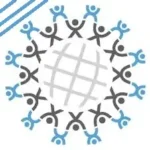Terms of Reference-Local Design Thinker at FSDT | June 2024
Job Description
TERMS OF REFERENCE
LOCAL DESIGN THINKER FOR FINCLINIC
MAY 2024
Established in 2004, the Financial Sector Deepening Tanzania (FSDT) is a donor-funded financial sector market facilitator that aims to achieve poverty reduction through a transformative financial sector that offers inclusive and sustainable financial solutions to improve the livelihood, wellbeing, and empowerment of underserved Tanzanians. FSDT’s work is guided by the Market Systems Development (MSD) approach, which aims to develop market systems that benefit the poor, offering them capacities and opportunities to improve their lives.
Currently, our main target markets are women and youth, who have been identified as the most financially excluded market segments in the country. FSDT is dedicated to supporting the financial sector in delivering inclusive, quality financial solutions that meet the financial needs of women and youth.
Through FSDT facilitation, we hope to achieve the following changes in the market:
• Improved policies, legal and regulatory frameworks that promote gender equality, as well as economic and financial opportunities for women and youth.
• Improved availability of relevant financial sector infrastructures that will equip the financial sector players and other stakeholders with the ability to meet the needs and aspirations of women and youth.
• Financial service providers developing and scaling innovative and responsive financial solutions/tools for women and youth to promote equality, empowerment, and wellbeing.
• Improved confidence and capability of women and youth to demand and use financial solutions.
Background of the Assignment
The “Ecosystem Analysis to Drive Financial Inclusion for Women and Youth in Tanzania” (FSDT February 2023) indicates the below supply side picture and clearly outlines the exis%ng supply side challenges for increased uptake and usage of formal financial services by women and youth.
A total of 37 programmes and products that target women and youth were idenEfied, which were mainly designed by either Banks or MNOs. The study has also revealed that most of the Microfinance InsEtuEons (MFIs) of Eers three and four do not have a parecular product for women and youth.
However, they have group loan products designed for both women and youth, which also address their collateral requirement shortcomings. Contin …






